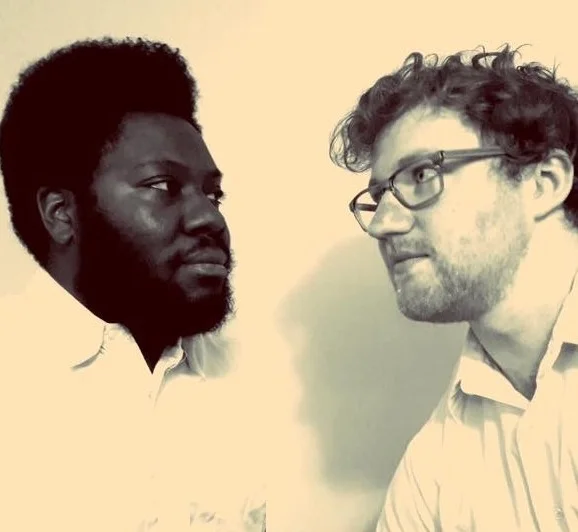Theater review: Silent Sky from Immediate Theatre Project
Edwin Arnaudin: Following another successful run of its charming Live From WVL Radio Theatre: It’s A Wonderful Life, Immediate Theatre Project returns to North Carolina Stage Company’s theater space with a comparably delightful production of Silent Sky. What qualities from this fellow period piece are sticking with you most the morning after its Asheville debut?
Bruce Steele: Several things, but I'd start with the lovely, resonant language. Playwright Lauren Gunderson set herself quite a task in dramatizing the life and accomplishments of American astronomer Henrietta Leavitt, whose work at the turn of the 20th century paved the way to measure distances in the heavens for the first time. What could have been dry and academic is instead lyrical and moving. And it gave the small cast a lot to work with.
Edwin: It’s also surprisingly funny, an edge that neither the title nor the material suggests, and pretty much always in a manner that compliments and elevates the rich interpersonal drama at hand. Beyond the growing, increasingly smiley affection that the characters have for one another, stemming from their time together at Harvard University, the gifted cast of five play things laudably straight-faced — a command all the more impressive considering the copious laughter issuing from the opening night audience.
Bruce: Indeed, I think the audience was completely charmed. I was. The characters are all so vivid, thanks to strong, nuanced performances across the board, and everyone makes an indelible impression right from the start. I'm thinking especially of the first scene between Henrietta (Rebecca Morris) and Peter Shaw (Willie Repoley), her initially reluctant colleague at the Harvard observatory, where women analyze the cosmic photographs but aren't allowed near the telescope. Morris and Repoley are perfectly in tune as their characters verbally joust and try different tacts to get the upper hand. Throughout the show, the smooth transitions between conflicting powerful emotions was remarkable.
Edwin: Also part of those shifts are Henrietta's female colleagues — the proud yet reserved Annie Cannon (Katie Langwell) and boisterous Scot, Williamina Fleming (Callan White) — who provide their own supportive hurdles for the new addition. Langwell's muted but comprehensible speech concerned me early on, but since her volume grows in tandem with Annie's self-confidence, I mostly embraced it as a character choice. White has an "easier" assignment as the more outgoing Williamina, yet she imbues the immigrant with tremendous grace between her more overt comedic moments.
Bruce: They're all finely honed performances. Langwell is blessed with perhaps the biggest character arc, but she's so spot-on throughout — balancing Annie's bracing self-confidence with a slight undercurrent of self-doubt that she gradually sheds — that Annie's evolution is just a bonus. As Henrietta's more conservative sister, Margaret, Trinity Smith takes a potentially stick-in-the-mud part and gives Margaret a sweet humanity and a good dose of humor. What did you think of that show's simple staging?
Edwin: Thanks to the period-appropriate dialogue, Repoley's and Hans Meyer’s no-fuss scenic design, Victoria Depew’s costumes, and Kenneth D. Horgan’s handful of props — namely the glass plates of stars and the wooden frames on which they sit — I felt transported back to the early 1900s. This was also the first show at NC Stage where I was seated next to the sound/lighting board, and it was a treat hearing stage manager CM Garrison pressing the proper buttons to bring to life the additional work of Meyer (sound design), plus that of Jason Williams (lighting) and Jan Powell (original music). The occasional constellations that gradually light up the set’s backdrop are especially moving.
Bruce: I never missed the lack of a set, especially with that dramatic backdrop coming into play now and again. And the costumes were perfect — historically appropriate but never calling attention to themselves, except for one amusing plot-driven exception in the second act. As the director, Meyer clearly worked hard with the actors to hone the delivery of Gunderson's exquisite writing in such a way that seems natural but retains both clarity and poetry for the audience. Morris is particularly adept at selling both academic and philosophical observations while still sounding completely at ease. I was riveted even when actors had their backs to me, which happened more than usual with this show.
Edwin: The passage of time is also sharply handled, speeding the story along with a telling detail in vocalized written correspondence or an observation by a character that provides context without feeling forced. For a two-hour play told over the course of two acts, Silent Sky zips along yet refuses to skimp on emotion and character development. It’s quite the accomplishment.
Bruce: I’m told Immediate Theatre Project’s Repoley has been wanting to mount this 2015 play for a couple of years, so I’m glad he finally got his wish. It’s so much more than we’ve been able to touch on here: a slice of feminist history, a revealing look at how our view of the universe has evolved, a touching family drama. And I suspect every audience member will find her or his own personal connection. I hate to fall back on the old “it’s not to be missed” cliche, but, well, it’s not to be missed.
Silent Sky runs through April 7, Wednesday-Saturday at 7:30 p.m. and Sundays at 2 p.m. at North Carolina Stage Company, 15 Stage Lane, Asheville. For details and tickets, visit ncstage.org.




